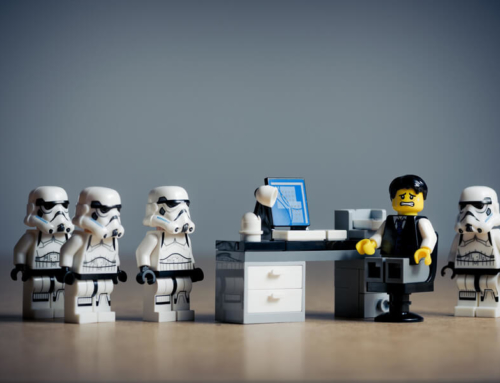Things change. It’s a natural fact of life. Let’s face it, if everything stayed the same, it’d all get pretty boring very fast. So change is good. However, when it comes to changes in large-scale industries, many companies ignore growing trends and are often left behind. We’ve seen it happen time and time again. For example, when was the last time you saw a video rental store?
Let’s take a look at some industries that went through an evolution and some companies that failed to change with the times.
1) PUBLISHING INDUSTRY
THE EVOLUTION: When digital publishing emerged in the early 2000’s, it didn’t catch on right away. The hardware was expensive and e-books were rare. However, by 2005 the trend was still growing and by 2010, not only were e-books a norm adapted by the publishing industry, they opened the door to self-publishing; a movement that forever changed the landscape of the publishing industry.
COMPANIES THAT FAILED: The shockwaves of this particular switcheroo are still being felt today. Early adopters like Amazon really cornered the market early on, but other companies like Barnes & Noble, while still around, were late to the party and when they finally offered their own e-book service in the form of the Nook, it was too little too late. As a result, B&N continues to close more and more of their brick and mortar stores every year. On the publishing side of things, publishers, particularly the small, medium, and indie publishing houses that either couldn’t afford to produce digitally published content or believed it to be a fad, ended up shutting their doors, with multiple indie presses shutting down between 2008-2015.
2) MOVIE DISTRIBUTION INDUSTRY
THE EVOLUTION: If you’d asked someone 20 years ago if they thought video stores would ever be replaced, they would probably have laughed. And with good reason. People born in the 80’s onwards fondly remember going to video stores for decades to choose movies to take home, watch, fail to rewind them, and then return them to the store. When DVD’s popped up as a new media form, most video stores adapted. When Netflix appeared in its first iteration as a ‘we’ll mail you movies to watch for an affordable price’ system, video stores laughed. When Netflix invited Blockbuster Video to invest in Netflix, they also laughed. When Netflix evolved into an affordable online streaming service . . . the laughter stopped. Crickets could be heard. Or at least they would have been heard had they not been too busy watching Netflix.
COMPANIES THAT FAILED: Pretty much all video stores. All independent stores and small chains including Gone Hollywood Video and Take One Video were the first to go. Rogers Video went next, instead opting to switch to its own PPV service and put more resources behind their other thriving departments. Blockbuster held out the longest until finally filing for bankruptcy in 2010 before closing their last store in 2011. Somewhere in the middle, we all decided to rent movies and just keep them.
3) MOBILE COMMUNICATIONS INDUSTRY
THE EVOLUTION: In the mid to late 2000’s there existed a digital evolution as cell phones became more user friendly and expanded well outside the realm of just calling people. Text messaging became the norm and while many mobile phone manufacturers made some drastic changes to get ahead of the curve, none accomplished it more effectively than Blackberry. With their fancy miniature keyboard, Blackberry created color screen devices that were intuitive and helped increase productivity as businesses began integrating the devices and associated software platform into company communications infrastructure. When touch screen technology took a massive leap in 2007, Blackberry wrongly assumed that the technology would never take off. “People typing on a screen? Preposterous!”
COMPANIES THAT FAILED: In a word, Blackberry. While most other cell phone companies quickly adopted touch screen technology with iPhone and Samsung leading the pack, Blackberry was behind (way behind) in their adoption process. One failed attempt at a relaunch after another resulted in massive layoffs, stock drops, and today Blackberry owns less than 0.08% of the cell phone market share. I mean, the keyboard was cool, just not touchscreen cool.
The lessons to be learned here? Don’t ignore trends to the point of blind ignorance, embrace change, and don’t be the last one to the marketplace. You don’t want to be Blockbuster.
We’re living in a time of self-driving cars and the large hadron collider. The team at Boston Dynamic is revolutionizing robotics and artificial intelligence, and with recent advancements in cybernetic technology; limbs, eyes, and ears are being replaced. It always pays to stay on the cutting edge of technological innovation. Maybe don’t get too close to the edge though . . . you may find yourself a simple hop, skip, and a jump away from this . . .





